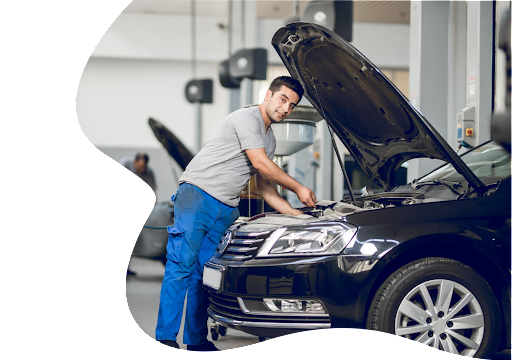All Categories
Featured
Brakes are arguably the most vital safety feature of any lorry. Without trusted brakes, even the most effective car can end up being a danger on the roadway.
- The Significance of Regular Brake Inspections. Brakes undergo continuous deterioration with every use, whether you're driving at broadband on the freeway or travelling via city streets. Gradually, brake pads, blades, and other components wear down, which can impact stopping efficiency. Without routine assessments, you might not see the progressive decline in effectiveness until it's too late.
Regular brake evaluations permit you to capture issues early, making certain that your brakes remain responsive, trusted, and safe. Timely examinations can also conserve you money by attending to small issues prior to they come to be pricey repairs.
- Usual Signs That Your Brakes Need Focus. While regular brake assessments are necessary, there are some indication you can watch out for to understand when it's time to arrange a check-up:
Squeaking or Grinding Sounds: High-pitched squeaks or grinding noises when applying the brakes are commonly indications that your brake pads are put on out and require substitute. Vibration or Pulsation: If you really feel resonances in the guiding wheel or the brake pedal, it could indicate distorted blades, which might need resurfacing or replacing. Soft or Mushy Brake Pedal: If the brake pedal feels unusually soft or mushy, there may be air in the brake lines or a trouble with the master cylinder. Pulling away: If your vehicle draws away while braking, this could be caused by uneven brake pad wear or a problem with the brake fluid. Enhanced Stopping Range: If it takes longer to stop than typical, it may indicate that the brake pads are put on, the fluid is low, or the rotors are damaged. If you discover any one of these signs, it's ideal to have your brakes examined promptly.

- Trick Elements Checked Throughout Brake Inspections. Throughout a brake examination, a technician will inspect numerous critical components of the braking system to ensure everything is working effectively. Right here are the vital components involved:
Brake Pads: One of the most common factor for poor braking efficiency is damaged brake pads. Evaluating the density of the pads is a top priority throughout every inspection. Brake Rotors: Rotors must be smooth and without grooves or splits. Any type of substantial damages to the rotors could bring about jeopardized braking performance and unequal pad wear. Brake Liquid: Reduced or polluted brake liquid can impair braking performance. The specialist will certainly inspect the fluid levels and high quality and change it if necessary. Brake Lines and Pipes: Brake lines need to be devoid of leakages or splits. Any kind of damage to the lines can lead to loss of brake fluid, causing brake failing. Brake Calipers: The calipers use stress to the brake pads. They ought to be examined for indicators of wear or leakages to guarantee they are operating properly. Consistently checking these parts helps maintain your brake system in peak problem, allowing you to stop your cars and truck securely and successfully.
- How Commonly Should You Have Your Brakes Inspected? The basic recommendation is to have your brakes checked at the very least yearly or every 12,000 miles, depending upon your driving routines. However, certain driving conditions might call for more constant assessments:
Heavy Traffic: If you frequently drive in stop-and-go website traffic, your brake pads will use down faster. Mountain Driving: Driving on high roads calls for more frequent stopping, which can cause your brakes to wear extra quickly. Towing or Hauling Heavy Plenties: If you frequently bring hefty tons, your brakes will experience a lot more stress and need more constant inspections. If you discover any of the indication mentioned previously, do not await the next scheduled assessment-- have your brakes examined immediately.
- The Consequences of Ignoring Brake Inspections. Ignoring regular brake assessments can lead to serious repercussions. A stopping working brake system might result in reduced quiting power, which boosts your risk of crashes.
In the most awful instance, driving with harmed brakes can result in finish brake failing, putting you and various other drivers in danger. Normal brake evaluations are a small financial investment that can conserve your life and prevent costly fixings.
- Conclusion: Keep Safe with Routine Brake Inspections. Brakes are not something you want to take opportunities with. A reputable stopping system is necessary for safe driving, and normal brake assessments are an easy way to make certain that your auto quits when you require it most. By remaining on top of brake upkeep, expecting advising indications, and having your brakes checked at the suggested periods, you'll shield both your automobile and your security.
Don't wait till your brakes begin to stop working-- timetable normal brake assessments and maintain your lorry in optimum condition for many years to come.
Latest Posts
Professional Industrial Roofing Solutions in North Platte, Nebraska
Find Brake Repair & More: Complete Auto Care Solutions from Montclare Auto Repair
Explore WyHy Federal Credit Union – Top Benefits for Your Money Goals
More
Latest Posts
Professional Industrial Roofing Solutions in North Platte, Nebraska
Find Brake Repair & More: Complete Auto Care Solutions from Montclare Auto Repair
Explore WyHy Federal Credit Union – Top Benefits for Your Money Goals
